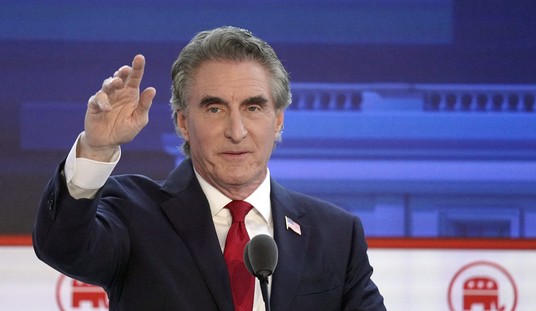There is an old principle of economics, famously described by economist Herb Stein, that's known as "Stein's Law." That law states, "If something cannot go on forever, it will stop."
That would seem to be stating the obvious to most folks of greater than room-temperature IQ, but there are any number of ideologies that aren't exactly in tune with reality; the climate scolds that vex us still are adherents to just such an ideology.
Nowhere is this more apparent than in the entire notion of "Net Zero." And Master Resource's Steve Goreham has details.
For the last two decades, state governments have embraced policies aimed at replacing coal and natural gas power plants with renewable sources. Twenty-three states enacted laws or executive orders to move to 100% Net Zero electricity by 2050. Onshore and offshore wind, utility-scale and rooftop solar, and grid-scale batteries were heavily promoted by states and most federal administrations.
The New York State Climate Action Scoping Plan of 2022 called for 70% renewable electricity by 2030 and 100% by 2040. But 49.7% of the state’s electricity came from gas in 2024, up from 47.7% in 2023. A January executive order issued by President Trump halted federal leases for construction of offshore wind systems. New York, nine other east coast states, and California were counting on offshore wind in efforts to get to 100% renewable electricity, but new offshore wind projects are now halted.
Notice how the jurisdictions in question are going backward, even with the propping up of seemingly endless federal subsidies. That's as good an illustration of Stein's Law as you're liable to find. Every effort bent to this goal of net-zero carbon emissions has failed, and in large part, this is because the various "green" energy advocates and the climate scolds seem to universally oppose the one technology that might move us at least closer to this goal: Nuclear power.
In the meantime, the big winner in the energy picture is a fossil fuel: Natural gas.
In December, the North American Electric Reliability Corporation concluded that that over half of North America risks power shortfalls in the next decade from surging demand and coal and gas plant retirements. Grid operators are now stepping back from the transition to wind and solar. Coal-fired power plant closures have been postponed in Georgia, Indiana, Illinois, Tennessee, Utah, West Virginia, and other states. Nuclear plants are being restarted in Michigan and Pennsylvania. But the big winner will be natural gas.
More than 200 gas plants are planned or under construction. Gas facilities can be brought online in about three years, compared to ten years for nuclear plants. Gas plants can be built near cities, often on former power plant sites, and require fewer new transmission lines than needed by wind and solar systems.
Now, it comes as no surprise to anyone who has been reading my words here (or anywhere) that I'm a big advocate of nuclear power. The new small modular reactors have great promise in bringing reliable, affordable electricity to small communities all over the world, and the new reactor designs are safe and reliable. We solve today's problems with tomorrow's technology, and these new reactor designs are an inescapable part of tomorrow's energy picture. Not because it's "green," but because it's reliable, affordable, and represents a significant increase in energy density.
Remember, every major advance in human civilization has come with a corresponding increase in energy density of the primary source of energy.
But in the meantime, natural gas is likewise clean and reliable, and we have a lot of it; the various "renewables" can't compete, and that becomes more apparent by the day. And even if we adopt nuclear power on a grand scale, and we should, petroleum and its by-products are still essential. They are essential for everything from cars and trucks in places where electric vehicles aren't practical (like rural Alaska) and also in industrial applications, from plastics to pharmaceutical precursors.
See Also: The Climate Scam: It Was (and Is) a Swindle
This Is Good: CO2 Causes Plant Growth, Global Greening
So Net Zero is collapsing. Despite the propagandizing by climate scolds, despite the various levels of government pouring taxpayer money down "renewable" rat holes, it's failing, and that's for the best; Stein's Law has once more been proven true.
Mr. Goreham concludes:
The Net Zero electricity transition, endorsed by many states for more than a decade, is failing in the United States. Wind, solar, and batteries suffer from the offshore wind cancellation, federal subsidy cuts, inability to meet the demand of the artificial intelligence revolution, grid battery fires, and high cost. A green energy breakdown is underway. States will be forced to return to sensible energy policy.
Thanks to the re-election of President Trump, we're already on our way to that goal.















